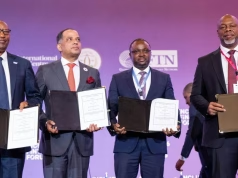The ongoing negotiations to review Nigeria’s National Minimum Wage Act of 2019 face significant challenges. These stem from the complexities of balancing workers’ needs, economic realities, and the interests of various stakeholders.
The Importance of the National Minimum Wage:
The National Minimum Wage is a crucial instrument to ensure fair compensation, reduce poverty, and promote economic growth. However, periodic reviews are essential to keep pace with economic fluctuations like inflation and rising living costs.
Current Economic Context:
The current inflation rate in Nigeria, at 33.69%, drastically exceeds the 11.40% rate during the last review in 2019. This necessitates a substantial increase in the minimum wage to protect workers’ purchasing power.
Disparities and Lifestyle of the Elite:
The opulent lifestyle of political office holders and business leaders sharply contrasts with the economic hardships faced by ordinary citizens. This disparity fuels discontent among workers and highlights the need for equitable economic policies.
Corruption and Misallocation of Funds:
Revelations of corruption and misappropriation of state resources by some former governors underscore the financial capacity of state governments to pay a fair minimum wage. This misallocation of funds hinders development and exacerbates worker struggles.
Negotiation Deadlock:
These contrasting realities and competing interests have created a deadlock in the negotiations. The “they and us” mentality, where workers fight for a fair share while elites protect their interests, hinders consensus.
Absence of Mediation:
The lack of mediation from the National Assembly, typically a crucial player in resolving such disputes, further complicates the situation.
Enforcement and Non-Compliance:
While enforcement mechanisms exist, many state governments flout the current minimum wage law without facing consequences. This necessitates stronger legal action by labor unions to ensure compliance and protect workers’ rights.
The Way Forward:
The labor movement remains resolute in its fight for fair compensation. The political ruling class and private sector must recognize the importance of equitable wages and work towards a solution that addresses the rising cost of living and ensures a decent standard of living for all Nigerians.

























